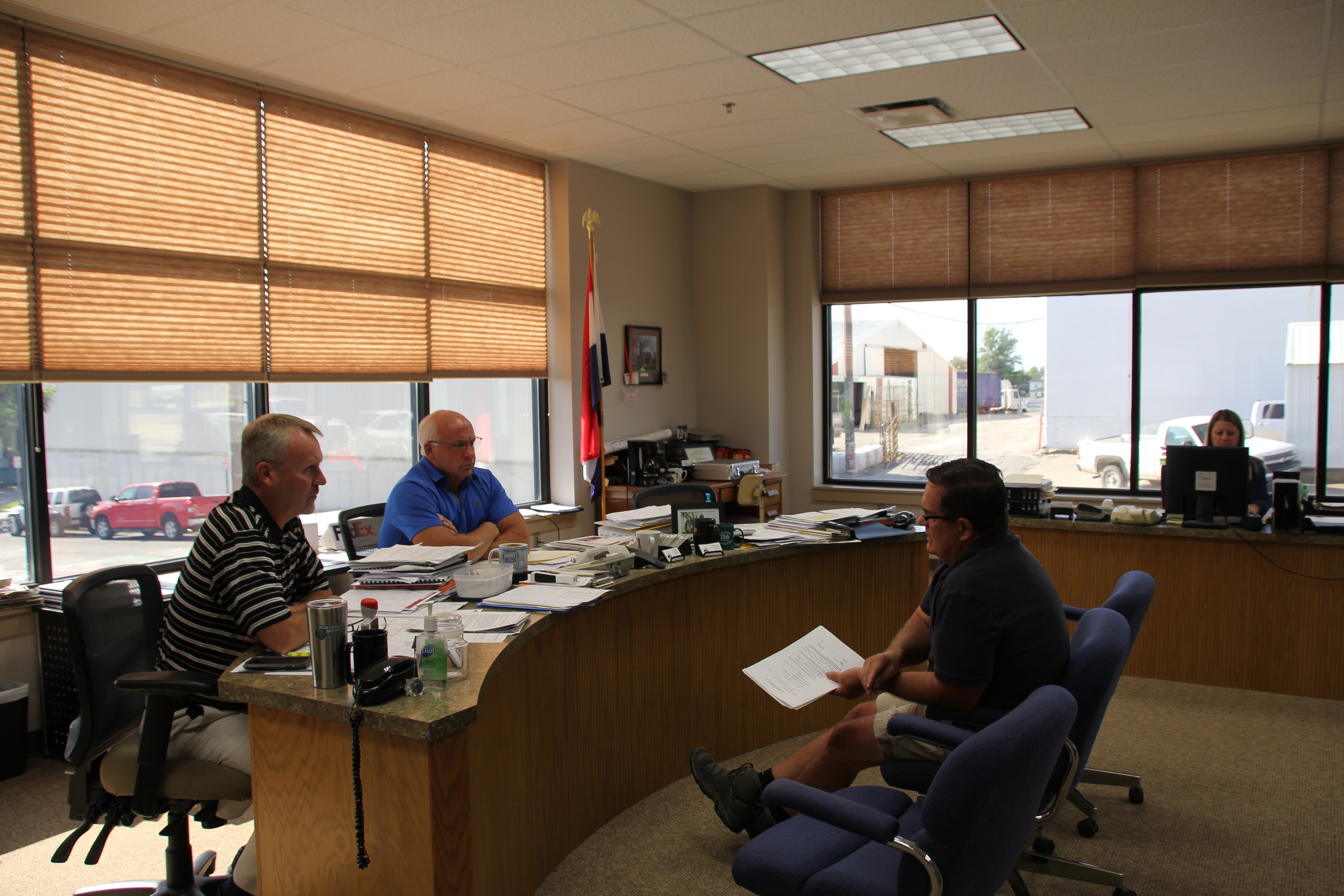NOCOMO Board of Directors President David Lawyer spoke to the Nodaway County Commissioners July 31 on the progress the sheltered workshop has made since 2010.
NOCOMO’s fiscal year ended June 30. The workshop was able to self-fund 60 percent of income through operations and grant writing. The state through the Department of Elementary and Secondary Education recommends workshops be 60 to 70 percent self-funded. Lawyer said the workshop was only nine percent self-funded in 2010.

Commissioners Chris Burns and Bill Walker listen to NOCOMO Board President David Lawyer as he reports on the NOCOMO sheltered workshop’s progress.
The workshop has invested over $367,000 into the county owned building since 2010, including paying off the approximately $90,000 mortgage on the facility.
Lawyer questioned the commissioners on the 5¢ per $100 valuation sheltered workshop tax, which is administered by the Nodaway County SB40 board.
This board was formed due to the passage, in 1969, of Missouri Senate Bill 40 that allowed the citizens of Missouri counties to vote on a tax levy to support various local services for individuals with developmental disabilities. March 25, 1975, Nodaway County passed this tax levy.
Lawyer provided a copy of the annual contract NOCOMO signs for 80 percent of the funded money. The SB40 Board had historically picked up the $15,000 insurance bill, which covers the building, vehicles and liability. This year, the amount SB40 is covering is $10,000.
The commissioners were unaware of the contract. Presiding Commissioner Bill Walker said he was going to ask about where funds were appropriated and how the board decides where the money goes.
Associate Commissioner Chris Burns suggested the SB40 board saw the workshop was generating income and so was too efficient.
Lawyer expressed concern that once funding is lost, it may not be possible to get back.
The NOCOMO board has been working on building a reserve fund, which the state recommends to be a year’s operating costs. These funds will be needed if the workshop is forced by legislation to go to minimum wage for certified employees. Lawyer estimates the workshop would be able to operate at a loss for six to eight years.
The workshop has more employees earning minimum wage than in the past and has had to cut their hours so they maintain eligibility for benefits.
A state survey conducted five years ago of the 92 sheltered workshops in the state listed NOCOMO as having the lowest functioning certified employees, said Lawyer. Since then, NOCOMO has brought in younger and higher functioning certified employees.




Facebook Comments